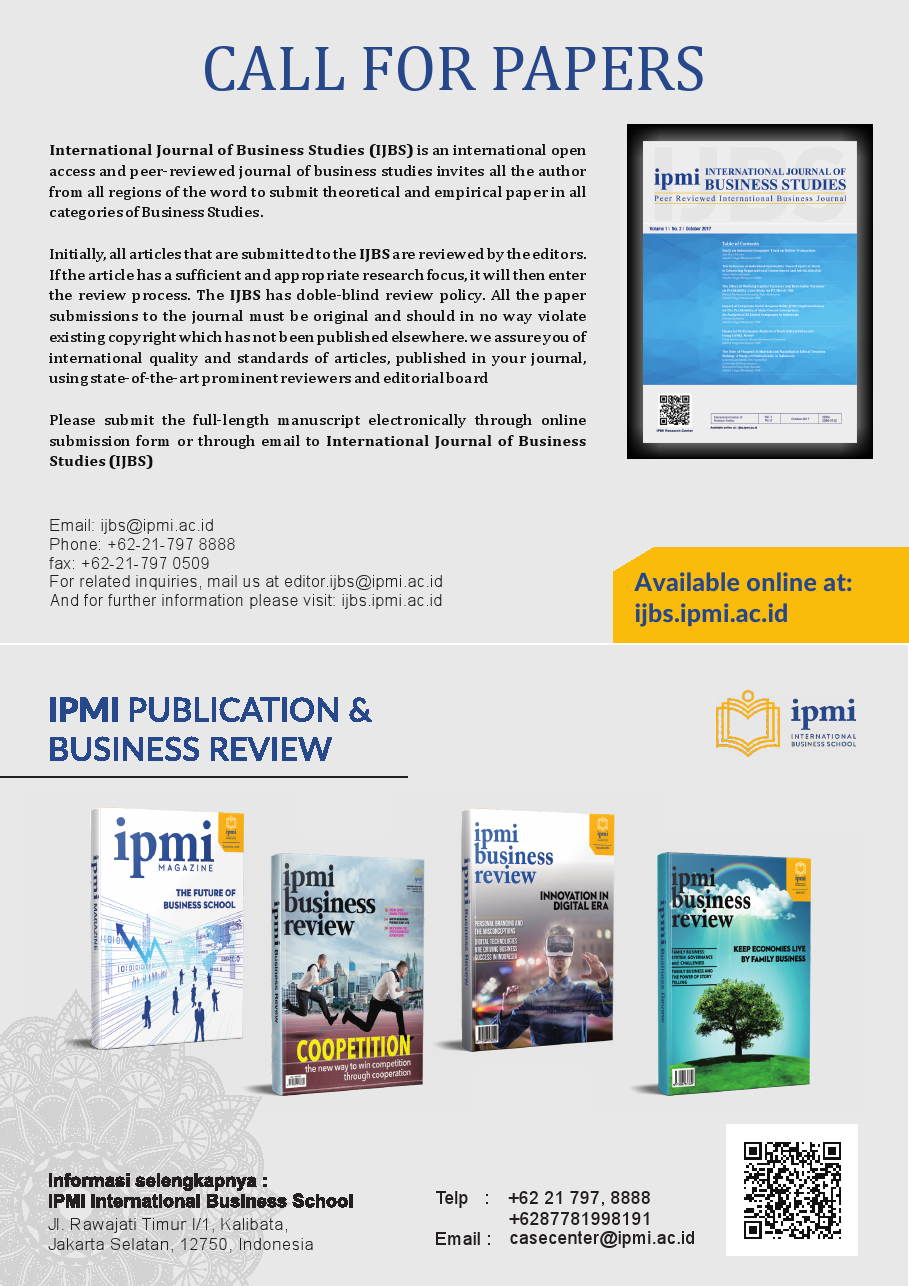Spiritual Development Programs, Individual Spirituality and Sustainability Mindset toward Higher Commitment to Social and Environmental Impact
DOI:
https://doi.org/10.32924/ijbs.v2i3.82Keywords:
Sustainable Mindset, spiritual development program, Spirit at Work, Business as a force of good, individual spiritualityAbstract
The aim of this paper is to analyze how the interaction of Spiritual Development Programs, Individual Spirituality and Sustainability Mindset of business school student are impacting toward the commitment to social and environmental impact. In this paper, the case study is taken from the implementation of a curriculum where sustainability mindset is embedded in the students’ lifestyle through spiritual development experiential learning phases which develops students’ understanding of their individual spirituality. By integrating the head, hands and heart the curriculum offers an opportunity for students to develop cognitive, emotional and spiritual intelligence simultaneously while completing their school projects. The journey begins by students designing their own Life Map, in which students are invited to create their vision with the assumption that they can freely pursue their dreams. The real-life challenge begins when they create their own Business as a Force of Good project in which they have to plan and run a profitable business which answers at least one of the Sustainable Development Goals (SDGs) with a minimum amount of investment. This paper shows that students who have been interacting with spiritual development program, has gone through a transformational individual spirituality toward the sustainability mindset where students perceived the new perspective of developing flourishing businesses with social and environmental impact.
Downloads
Submitted
Published
How to Cite
Issue
Section
License

International Journal of Business Studies by Sekolah Tinggi Manajemen IPMI is licensed under a Creative Commons Attribution-ShareAlike 4.0 International License.
Authors who publish with this journal agree to the following terms:
1. Copyright Transfer Agreement Form can be downloaded HERE.
2. Authors retain copyright and grant the journal right of first publication with the work simultaneously licensed under a CC BY-SA Creative Commons Attribution-ShareAlike 4.0 International License that allows others to share the work with an acknowledgement of the work's authorship and initial publication in this journal.
3. Authors are able to enter into separate, additional contractual arrangements for the non-exclusive distribution of the journal's published version of the work (e.g., post it to an institutional repository or publish it in a book), with an acknowledgement of its initial publication in this journal.
4. Authors are permitted and encouraged to post their work online (e.g., in institutional repositories or on their website) prior to and during the submission process, as it can lead to productive exchanges, as well as earlier and greater citation of published work.















